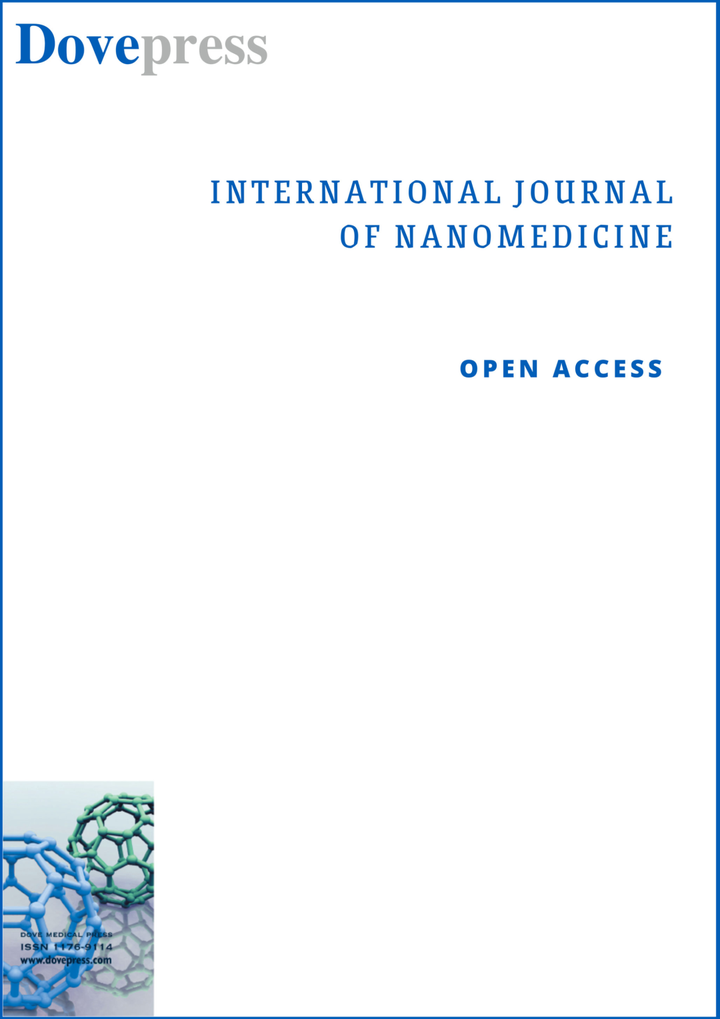PLGA-黄芪多糖纳米疫苗对结直肠癌有疗效
IF 6.6
2区 医学
Q1 NANOSCIENCE & NANOTECHNOLOGY
引用次数: 0
摘要
背景:在临床研究中,肿瘤疫苗在治疗各种肿瘤患者方面取得了显著进展。然而,广泛的研究也表明,由于肿瘤疫苗的免疫原性较低,其治疗实体瘤的效果并不尽如人意。因此,设计一种能激发广泛抗肿瘤免疫反应的肿瘤疫苗迫在眉睫:在这项工作中,我们开发了一种纳米疫苗(NP-TCL@APS),其中包括将结肠直肠癌肿瘤细胞裂解物(TCL)和黄芪多糖(APS)载入聚乳酸(乳酸-共聚乙醇酸)的纳米颗粒,以诱导强大的先天性免疫反应。透射电子显微镜和马尔文激光粒度分析仪对 NP-TCL@APS 进行了鉴定。在体外评估了 NP-TCL@APS 的杀伤和免疫激活效应。最后,在结直肠癌肿瘤小鼠模型中对其安全性和抗肿瘤功效进行了评估:结果:我们发现 NP-TCL@APS 可优先被直流电摄取,并进一步促进直流电在体外的活化。此外,TCL 和 APS 的纳米颗粒还增强了小鼠模型的抗原特异性 CD8+ T 细胞反应,抑制了肿瘤的生长,具有良好的生物相容性:我们成功制备了一种名为NP-TCL@APS的纳米疫苗,它能促进DC成熟,诱导T淋巴细胞产生强烈反应,从而发挥抗肿瘤作用。本文提出的策略有望用于制备肿瘤疫苗,并可扩展到各种类型的癌症。本文章由计算机程序翻译,如有差异,请以英文原文为准。
PLGA-Astragalus Polysaccharide Nanovaccines Exert Therapeutic Effect in Colorectal Cancer
Background: Tumor vaccines have achieved remarkable progress in treating patients with various tumors in clinical studies. Nevertheless, extensive research has also revealed that tumor vaccines are not up to expectations for the treatment of solid tumors due to their low immunogenicity. Therefore, there is an urgent need to design a tumor vaccine that can stimulate a broad anti-tumor immune response.
Methods: In this work, we developed a nanovaccine (NP-TCL@APS), which includes nanoparticles loaded with colorectal cancer tumor cell lysates (TCL) and Astragalus polysaccharides (APS) into poly (lactic-co-glycolic acid) to induce a robust innate immune response. The NP-TCL@APS was identified by transmission electron microscopy and Malvern laser particle size analyzer. The killing and immune activation effects of NP-TCL@APS were evaluated in vitro. Finally, safety and anti-tumor efficacy were evaluated in the colorectal cancer tumor-bearing mouse model.
Results: We found that NP-TCL@APS was preferentially uptaken by DC and further promoted the activation of DC in vitro. Additionally, nanoparticles codelivery of TCL and APS enhanced the antigen-specific CD8+ T cell response and suppressed the growth of tumors in mouse models with good biocompatibility.
Conclusion: We successfully prepared a nanovaccine termed NP-TCL@APS, which can promote the maturation of DC and induce strong responses by T lymphocytes to exert anti-tumor effects. The strategy proposed here is promising for generating a tumor vaccine and can be extended to various types of cancers.
Methods: In this work, we developed a nanovaccine (NP-TCL@APS), which includes nanoparticles loaded with colorectal cancer tumor cell lysates (TCL) and Astragalus polysaccharides (APS) into poly (lactic-co-glycolic acid) to induce a robust innate immune response. The NP-TCL@APS was identified by transmission electron microscopy and Malvern laser particle size analyzer. The killing and immune activation effects of NP-TCL@APS were evaluated in vitro. Finally, safety and anti-tumor efficacy were evaluated in the colorectal cancer tumor-bearing mouse model.
Results: We found that NP-TCL@APS was preferentially uptaken by DC and further promoted the activation of DC in vitro. Additionally, nanoparticles codelivery of TCL and APS enhanced the antigen-specific CD8+ T cell response and suppressed the growth of tumors in mouse models with good biocompatibility.
Conclusion: We successfully prepared a nanovaccine termed NP-TCL@APS, which can promote the maturation of DC and induce strong responses by T lymphocytes to exert anti-tumor effects. The strategy proposed here is promising for generating a tumor vaccine and can be extended to various types of cancers.
求助全文
通过发布文献求助,成功后即可免费获取论文全文。
去求助
来源期刊

International Journal of Nanomedicine
NANOSCIENCE & NANOTECHNOLOGY-PHARMACOLOGY & PHARMACY
CiteScore
14.40
自引率
3.80%
发文量
511
审稿时长
1.4 months
期刊介绍:
The International Journal of Nanomedicine is a globally recognized journal that focuses on the applications of nanotechnology in the biomedical field. It is a peer-reviewed and open-access publication that covers diverse aspects of this rapidly evolving research area.
With its strong emphasis on the clinical potential of nanoparticles in disease diagnostics, prevention, and treatment, the journal aims to showcase cutting-edge research and development in the field.
Starting from now, the International Journal of Nanomedicine will not accept meta-analyses for publication.
 求助内容:
求助内容: 应助结果提醒方式:
应助结果提醒方式:


